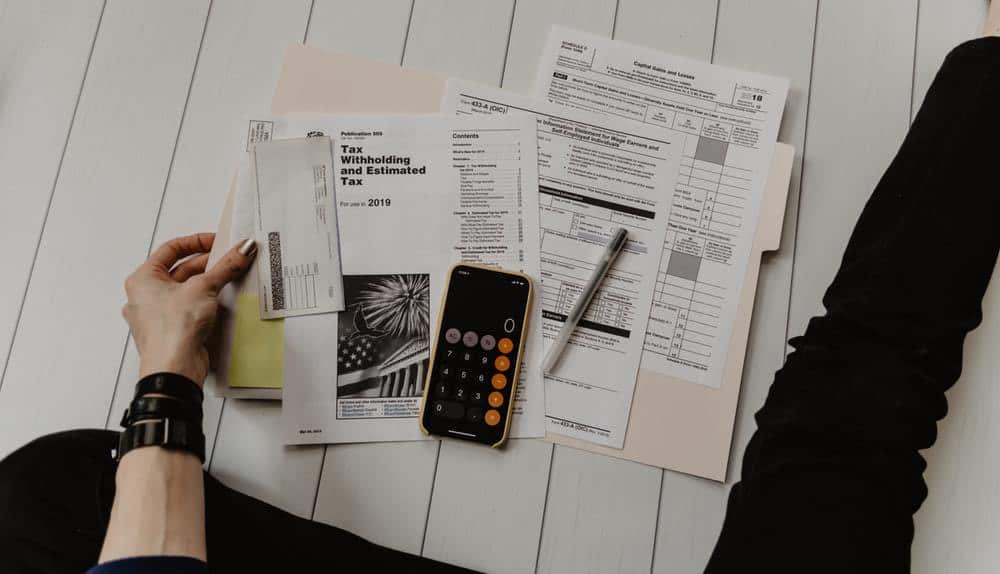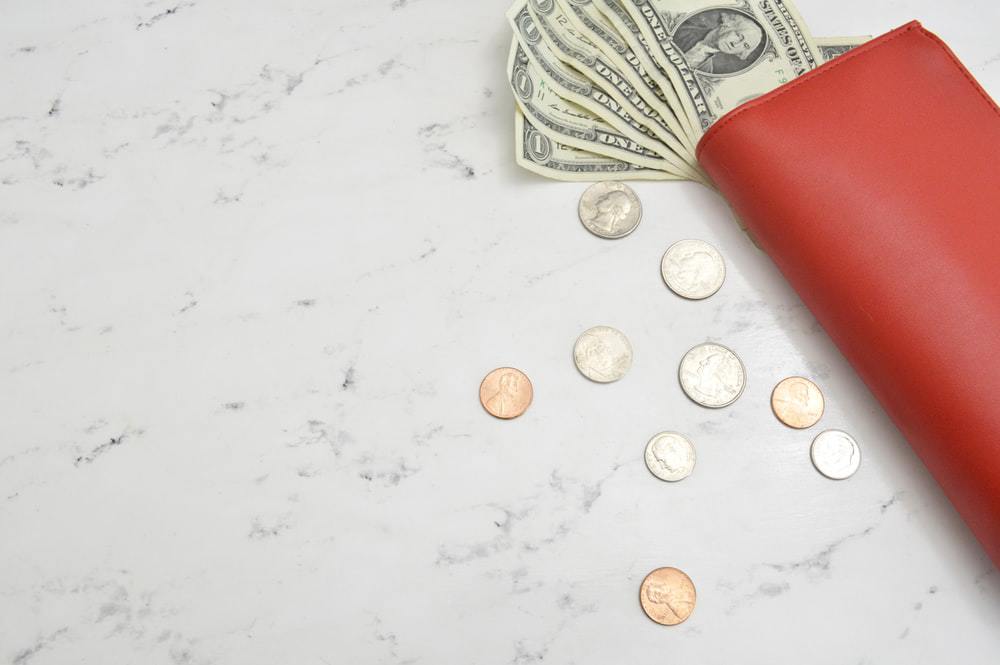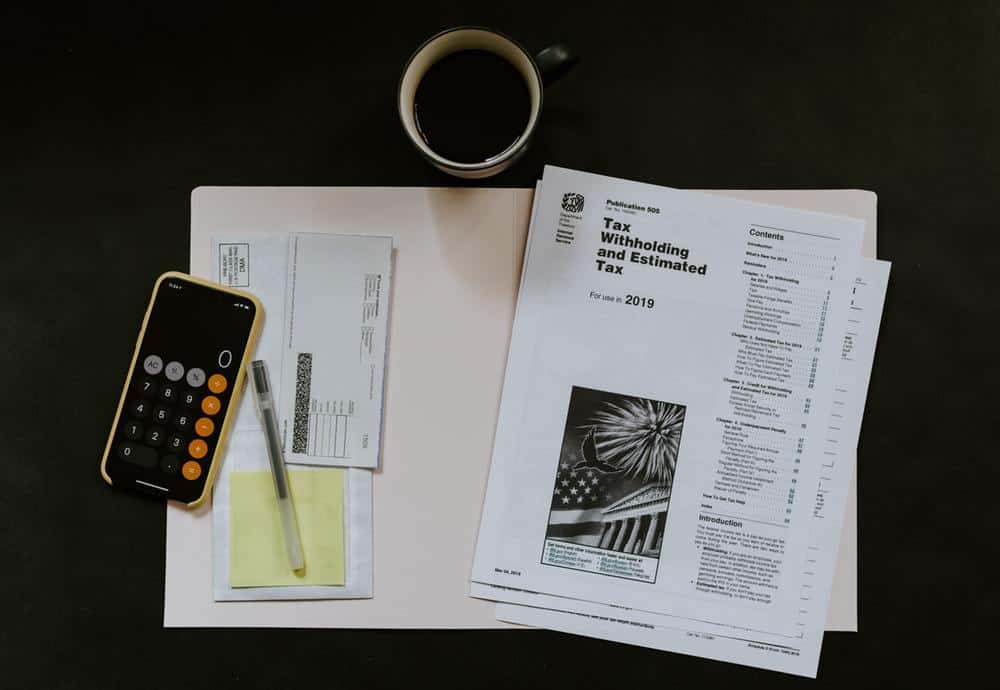- Wells Fargo vs Bank of America: Which is the Better Bank? - November 9, 2019
- M1 Finance and Betterment: A Complete Comparison - November 4, 2019
- Personal Capital vs Wealthfront: Which Should You Go For? - October 20, 2019
Organize Your Finances
If you want to be better off financially, then taking this first deep breath step is essential. How can you live month to month unless you know how much you spend? Make a list of all the accounts you have. That includes:- Checking accounts
- Credit cards
- Personal loans
- Car finance deals
- Mortgages
- Brokerage accounts
- Retirement accounts
- College funds
- College loans

Categorize Your Spending
This means looking forensically at every single detail on each of your spending threads and dividing them up into essential and non-essential spending. It’s natural for us to want to go all out on payday. However, first off, it’s critical to put money aside for the essentials. This includes mortgage or rent payments, insurance payments, bills for services such as gas, electricity, phone, and water. Also, money put aside for taxes, fuel, groceries, and any payments you need to make regularly such as a car loan or paying into a retirement fund. Next up, we get to the part most of us want to avoid. The non-essential “essentials”! By this, we mean magazine subscriptions, cable TV that you don’t have time to watch, new clothes, coffee shops, restaurants and bars, and trips away. What can you stop having? Is that lifestyle magazine really that important or that latte and muffin on the way to work? Instead of buying your lunch at work, make it in advance. Instead of eating out, meal plan at home, it’ll save you a ton of money on groceries, and you can improve your culinary skills at the same time. Ask yourself these questions:- Can I live without it?
- Do I need it?
- Can I afford it?

Earnings vs. Spending
By this, we mean spending less than you earn. It’s one of the primary and most important principles of money management. We all want to live well and for a long time, but having a celebrity lifestyle without a celebrity budget is impossible. That’s how debts happen. There are plenty of things we can enjoy in our downtime that don’t cost money, including exercise. It may seem obvious to say, but thousands of us spend more than we have, and while there are occasions when that’s inevitable or unavoidable, it can be avoided. Using personal finance software is one of the easiest ways of tracking your spending and income so that you can fulfill those longer-term goals. Doing this will give you greater control and will feel just great. Spending less than you earn is simpler if you keep a daily eye on your spending. So, a simple budget that is realistic in its goals will work wonders. You can set yourself a daily spending maximum, a weekly spending maximum, and so on. If you overreach that, then it’s time to look at your expenditure again. It doesn’t have to be a punitive exercise, just one that you are honing as you learn to change your spending habits.
Debt Reduction
If you have debt, an essential principle of any good money manager is to get rid of it as fast as you can. Whether lending rates are low or high, aim to get rid of your financial obligations. This includes having a mortgage by the way. Have your end goal in sight. Can you set a goal that, for example, aims for you to have paid off your mortgage by the time you’re 50? 55? Or even sooner? It doesn’t have to be a punitive goal, just a goal you can visualize and work towards. Call it a financial ambition if you like. Also, pay off your credit card! CNBC reported in February that American debt, according to the Federal Reserve exceeded a record $4 trillion. According to the same CNBC report, the average American has a credit card balance of $4,293. Credit card debt is at its highest ever, according to the Federal Reserve and Experian. Here’s one good reason alone to reduce or pay off our credit card debts fast. Here is where so many of us incur our debt with high repayment interest rates that are so difficult to repay, the sooner any credit card debt is paid off, the better. If you’re in a position where you don’t have a huge bill, but you are still using your card, try not to. And if you do, pay it off in full every month without fail. Also, shop around. Look for low or 0% interest rate cards and move your debt around, so you’re paying less out. One of the most common slips people make is living on credit, so if you’re taking out a credit card, look for a good deal, rewards such as travel rewards or cashback schemes. If you have to admit to yourself that maybe you can’t keep track of your credit card spending, then there’s nothing else for it but to cut the cards up, throw them out and pay off any outstanding debts as soon as you realistically can. Remember that every loan you have that you’re repaying, be it a credit card, a car loan or personal loan is money that you have spent on items that are depreciating in value. Cars don’t keep their value, neither do shiny household goods or clothes unless you really can afford designer wear for which there’s always a market. However, you’ll never ever recover your spending. None of these will retain their value. And, you’re paying interest on top for them, so in reality, your car is costing you way more than the price tag at the car lot! So when you put it like that, why use credit for any of these things? Credit cards are not cash. If you are in a position where you can only pay off the absolute minimum specified by the credit card company, then you are in trouble. Look at each of the bills you pay. Do an audit to see how much you’re being charged for all your essential utilities. We live in a competitive marketplace, and utility companies are no strangers to offering consumers better deals. Keep on top of how much your bills are costing you and take your custom elsewhere if you find that you’re paying way more than your neighbors are. What’s the point of staying loyal to one provider when there’s a cheaper one with an equally good customer service record elsewhere? Here are two great apps that will help you with your financial management, see how they compare.
Plan for the Unexpected
No one knows what the future holds. Most of us will go through life and pass the usual milestones, college, a wedding, a new home, and so on. However, it’s crucial to manage your money so that you are as prepared as you can be for the unexpected, such as accidents, death, job loss, a car accident, burglary or disability. We don’t want to be the harbingers of doom, but you have to take into account that sometimes bad things happen to good people. Make sure you and your family are adequately insured. It’s all part of securing your future and of managing your money better. Imagine having no insurance, but you do have savings, and suddenly something terrible happens. What then? All your hard saved money has to go on a negative. Avoid that wherever possible and the future will feel like a safer place to think about.
Save, save, save
Before you think about making a commitment to making any investments, you have to teach yourself to save. This may sound obvious, but if you’re a total newbie where saving is concerned than just practice putting a small sum away each month, so you won’t even notice it’s gone. Try putting a small quantity away as soon as you get your paycheck. Whatever the amount you choose, you need to save a certain amount regularly. Try doing this for up to 6 months; it’s a way of getting into the habit of putting money aside without really noticing the hit. Some people set up more than one saving fund. For example, one for emergencies (new heating, new car, job loss, medical emergency, new roof, and so on). Then a long term saving account that’s mainly for retirement and college funds, for example. Then lastly, there’s the shorter term saving fund. That’s for saving for a house deposit, home improvements, weddings, or a special vacation. The idea of splitting your savings is to simplify them and to offer you some sort of security and peace of mind. It’s evident that sometimes when you have high expenditure months, the longer-term savings goals may suffer, but committing to this process is an essential step in living within your means and understanding money management. Use this often quoted principle, Income – Expenses = Savings. Remember that each time you’re tempted to buy something you really don’t need.
Take Your Age Into Account
The sooner you start, the more you’ll have. Period. If you’re in your 20s and reading this, then know if you saved $10 a day until you’re 65 with a 5% return, you’re going to have a hell of a lot more than if you start in your 40s. If you don’t start saving until then, it stands to reason that you’re going to have to save a lot more for your retirement. The principle here is to save early and save often. Even a jar on the kitchen counter where you dump your loose change is better than burying your head in the sand!
Invest Wisely
Anyone starting out with investments needs to do their research and plan carefully. Don’t just leap in and believe what someone else tells you. Check and check again where you’re thinking of putting your hard-earned money. Work out what your long-term goals are for you and your family/future family before considering investing. Also, for the uninitiated, remember that any investment carries a level of low, medium, or high risk attached. So, the higher the risk, the higher the return. If you’re just starting out on this particular money management issue, then you won’t necessarily have a lot to play with at the beginning. Do your research first and learn about the high, medium, and low investments. For example, if you want to invest in stocks and bonds, these have a higher risk attached, and so the return rate is usually higher. But if you deposit your money in accounts that track the money market, the return will be lower. None of us have a crystal ball, and no investment is 100% safe, so be realistic about your approach and your expectations. Don’t invest every last cent of savings that you have in one pot.
- How long do you want to invest for, is it quick or are you looking at retirement?
- How comfortable do you feel about markets that go up and down?
- Do you have any other sources of income other than a job? Is there family money now or will there be in the future?
- What are your cash flow needs each month and year and how much access do you have to ready cash if your investments are going to be locked in?
Stay Informed

- Vanguard vs Fidelity: How To Choose The Right One
- EveryDollar vs YNAB: Which One Is Right for You?
- Ynab vs Mint: Which Money Management Solution Is Best?
- Ynab vs Personal Capital: Which is The Best?
- Mint vs EveryDollar Comparison: Which is Most Suitable For You?
- Personal Capital vs Mint – Which is Best for You?
Diversify Your Income
You have a job; it pays you a monthly or weekly salary. Sit down and look at other ways that you can earn money from home. For example, using any skills, you have that can be put to making money. You could try launching a business such as selling used goods online, small bookkeeping or freelance writing and social media for small businesses. Look at impulse purchases you’ve made and never worn or rarely used. Can you sell them? Any extra income can be reinvested in your sideline and eventually, you can use profits by putting them into investments and savings, or, in the first instance, getting you out of debt.
Look at Your Job
Ensure you are making the most of your employee benefits such as the 401(k) plan, dental and medical insurance, and any other employee discounts that are on offer from your employer. Know your worth. Do you have a skill that you’re using at work that you know you’re underpaid for? Try to negotiate a raise. If your employer is hesitant to pay you what you’re worth, negotiate, and demonstrate to them why they should be paying you more. However, you need to be realistic and start looking around for a job that offers the same or better employee benefits and salary if your employer is so reluctant that there’s a lousy atmosphere after the negotiation. After all, none of us can survive or plan ahead on empty promises. Asking for a pay rise is a way of increasing your value not just with yourself but your employer. And, if you’re self-employed, you need to maximize what you can offset against your business to ensure you reduce any taxes you have to pay. If you’re spending a lot of money on a client or potential client dinners, look at the return you’re getting. If it’s a big fat zero, then you need to think of a new and cheaper strategy. Some people are just never going to bite; they really do just want a free lunch that’s on you.
Don’t Forget Your Taxes
Planning for your tax bill is essential. If you are already using a financial planning app, then use it to organize your year-end tax filing. It’ll make the entire process way more straightforward and less intimidating. Part of budgeting and monitoring your spending is tracking the receipts that you can offset against your tax bill. Keep your receipts and in order! Also, remember that any investments you make can have any impact on your taxes. If you make a good amount of money, chances are you’ll have to pay tax on it. Plan for this and consider your investments first.
Keep a Keen Eye on Your Credit Score
When you borrow money, information about you is shared with credit agencies. These same agencies will then have access to other information about you, such as whether you pay your bills on time, including your credit card and loan payments. They’ll know if you’ve missed payments or made late payments and how much money you owe. None of this is secret. All of this information is then used to assess what your credit score or credit rating is and lenders, such as mortgage companies, will base their decision on whether or not to lend you any money or not on your credit score. Aiming for a high credit score is an essential aspect of budgeting better and managing your money. It’s another excellent reason why paying your bills on time is crucial.
Housekeep Your Finances Regularly
An essential aspect of money management is that it’s not static. Of course, if you’ve invested some of your money and are also saving regularly, you’d be forgiven for thinking those things are taking care of themselves. Put regular dates in your diary to give your finances a periodic check. What does this mean? If you have investments that are being handled by someone else, then schedule in a regular quarterly call or face-to-face with whoever is running them on your behalf. If you have savings accounts, check them, ensure payments are going into the accounts, don’t assume banks don’t make errors. They do. Look at all your monthly transactions. See what’s coming out of your account and why. If you keep a sharp eye on your money, you’ll avoid unnecessary charges and errors. It’s also a way of ensuring you are budgeting correctly and not taking into account price changes and bill increases or decreases. You may find yourself with a bit of extra money you can then put into a savings or investment account.
Pass it on
No, we don’t mean to give it all away! We mean once you have learned these basic steps we’ve covered, help your friends and colleagues who are living a day to day financial existence. And, if you have a family, then teach your kids how to save and plan. You never know by passing it on, you might be accidentally nurturing the first millionaire in the family!FAQs About How to Budget Better
A 30 day rule is putting money on side for a thing you want to purchase but you’re not sure you need it. If you happen to still think about it after 30 days you can take the money from the account and make a purchase.
The 50/20/30 rule is related to your funds and how you are spending them. You should always put 50% of the funds for your needs (bills,food, etc.), spend 30% on things you want, and put 20% in your savings account.
In order to improve your budget, you need to make a savings strategy. You should spend money on essentials and bills, and reduce spending on clothes, accessories and eating out. There are lots of good ways to reduce money on electricity, water, and food, so make sure you do research or hire someone to help you with budgeting.